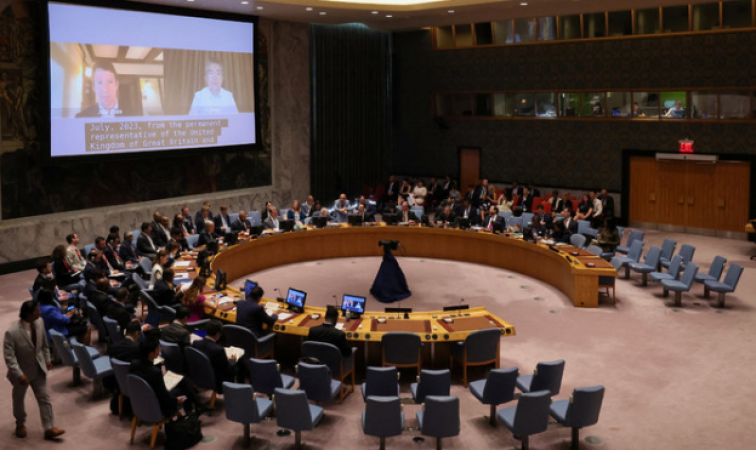
UNO: China warned against the technology becoming a "runaway horse" at the United Nations Security Council's first meeting on artificial intelligence on Tuesday, and the United States cautioned against its application to censor or oppress people.
AI will "fundamentally alter every aspect of human life," according to James Cleverly, the British Foreign Secretary, who presided over the meeting while his country held the organization's presidency in July.
He went on to say that AI could aid in addressing climate change and boosting economies, and that we urgently needed to shape the global governance of transformative technologies because it knows no borders. He did, however, issue a warning that the technology feeds misinformation and may help both state-sponsored and non-state actors in their search for weapons.
UN Secretary-General Antonio Guterres, Jack Clark, co-founder of well-known AI startup Anthropic, and Professor Zeng Yi, co-director of the China-UK Research Center for AI Ethics and Governance, briefed the 15 members of the council.
Also Read: UK Military Studies Captured Russian Tanks to Gain Insights on Russian Military Technology
AI applications, both military and non-military, "could have very serious consequences for international peace and security," Guterres warned.
Guterres supports calls from some nations to establish a new UN body "to support collective efforts to govern this extraordinary technology," modeled after the International Atomic Energy Agency, the International Civil Aviation Organization, or the Intergovernmental Panel on Climate Change.
Zhang Jun, China's ambassador to the UN, referred to artificial intelligence as a "double-edged sword" and stated that Beijing supports the UN's central coordination role in establishing AI guiding principles.
Zhang said, "Whether it is good or bad, good or evil, depends on how mankind utilizes it, regulates it, and how we balance scientific development with security," adding that a focus on people and AI for good should be made to regulate development and "prevent this technology from becoming a runaway horse."
Also Read: Pakistan and Iran's militaries will cooperate more against militant border attacks
In order to address risks to human rights that could jeopardize peace and security, countries must collaborate on AI and other emerging technologies, according to Jeffrey DeLaurentis, the deputy US ambassador to the UN.
"No member states should use AI to censor, constrain, repress, or disempower people," he told the council. Russia questioned whether the council, which is in charge of preserving world peace and security, ought to be talking about AI.
Also Read: Government's Migration Plan Sparks Debate: Is This the Right Way to Deal with Asylum Seekers?
Dmitry Polyanskiy, Russia's deputy UN ambassador, said: "What is required is a professional, scientific, expertise-based discussion that can take several years and this discussion is already underway at specialized platforms."